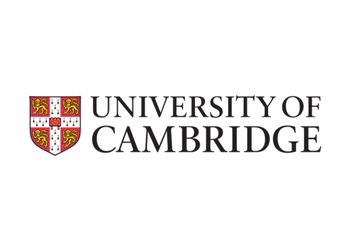

University of Cambridge
speciality: Archaeology
What Is an Archaeology Degree?
Even though it is not a common degree, archaeology has started to become more and more popular amongst students from all over the world.
Archaeology degrees are designed to give students a wider perspective about human society throughout time, whether we talk about culture, history, or ways of life in the past.
Undoubtedly, Archaeology is a challenging degree, due to the fact that it is based on cross-disciplinary research. Thus, any student will develop various skills such as surveying, data analysis and textual criticism.
Benefits of an Archaeology Degree
The advantage of an Archaeology course is that you are highly employable for this industry. This field, as compared to others, does not have enough human resources to meet the market’s needs. Consequently, graduates from this degree are the perfect candidates.
Additionally, archaeology graduates are equipped with transferable skills. More precisely, the skills gained during the degree can be applied to a variety of careers. One example can be business and management, an area which emphasises critical thinking, analytical and practical skills, and the ability to work in a team. These are just a few of the competencies gained from an archaeology degree.
Therefore, graduates from this field are highly sought after for their skills which can be applied not only in Archaeology but also in other specialities.
Archaeology Degree Structure
Archaeology courses are three-year commitments, although there are many institutions which now include a fourth year of studies. It can be offered either as a Bachelor of Arts (BA) or Bachelor of Sciences (BSc) degree.
If you choose Archaeology as part of a BA, it is likely to focus more on humanities. In contrast, a BSc will give you a science-oriented perspective. Regardless of your choice, you should keep in mind that the course is a combination of arts and sciences.
Lastly, every Archaeology course requires fieldwork. Some universities might even offer you the chance to conduct excavations in countries like Egypt or Greece.
3 Student Reviews
Filter reviews-
Classics4 months ago
 RubyGBA unique uni, to say the least
RubyGBA unique uni, to say the leastCambridge University provides a unique experience to its students. The difficulty of this is that it is hard to tell whether this experience is the right one for you.
If you are looking at applying to the University of Cambridge, I would recommend following these tips:
> Choose your college carefully;
>>> Colleges have a larger impact on your overall educational experience than you think. It is your college who organises the bulk of your teaching, so it’s the wealth and contacts they have that often determines what that teaching looks like. It is worth emailing the Director of Studies in your subject at different colleges to see what kind of teaching is provided.
>>> Your choice of college also impacts your application process. Competitive colleges who score higher in the Tompkins Table (which ranks the colleges by academic success) – ie those colleges that are more likely to be richer and have ‘better contacts’ – are much more picky with candidates, and choose those who already show a deep knowledge and natural proficiency towards your subject. Colleges lower down the Tompkins Table are often more nurturing of your individual ability and interest. You can still do very well academically without being at a highly-achieving college.
>>> Sometimes applying to a college is also about strategy – if a college had a high number of applicants over the past few years (this information is publicly available) then they are more likely to be harder to get into.
>>> It is also important to consider how much financial assistance you might need when applying to colleges. Unfortunately if you know that you are in need of financial assistance you are probably not going to want to apply to a ‘poorer’ college. Look at each college’s website to see the kind of bursaries they offer to help you determine whether a college is right for you.> Pay close attention to course content;
>>> If you are applying to Oxbridge, look carefully at how each year of your course is structured. (If this information is not readily available on either the Cambridge University website or faculty website, you can email the faculty secretary for this information.) This includes which modules are compulsory, which aren’t and how they are examined. It is good to compare how Cambridge and Oxford courses are structured because they tend to be very different and one may suit you much better than the other. If you find that the course you want to choose is lacking, it is probably not worth choosing Oxbridge just for the title. At the end of the day, the uni you choose determines your overall experience just as much as it determines the piece of paper you get at the end of it, and your experience is going to be heavily impacted by how much you enjoy what you are actually studying.> Student experience;
>>> Cambridge is known for being an intense and rigorous university. Before applying you need to think very carefully about whether this is right for you. In some cases, this may involve sacrificing a social life for your academics.
>>> That being said, you can make Cambridge work for you. The university has a huge number of societies, a decent nightlife and the city is a really lovely environment to live in. Prepare for the societies to be fairly high-level; most societies can be criticised for not being very welcoming to complete beginners. Whether Cambridge is the right fit for you really depends on your attitude towards the university experience as a whole, and what you want to get out of it.> Your educational background;
>>> It pains me to say but your experience at Cambridge will to an extent be affected by your educational background. If you come from a state comprehensive background, where you are unlikely to have had a very intense workload or a great deal of pressure on yourself, Cambridge will feel very different. You may be thinking that I’m over-exaggerating, but it is worth noting that there’s a huge difference between being really self-motivated at secondary school and sixth form to being dealt a Cambridge workload and being forced to float. I’m not saying this to be discouraging – I’m from a state-comp background and I’m still here after three years – but more to prepare you. Students who come from better educational backgrounds are much more used to juggling harsher work schedules, so their experience will be different. It’s worth asking yourself how much you enjoy working hard, and whether it’s something you want to continue to do for another three/four years.The Cambridge experience is a very unique one, and this comes with its own challenges, but also many advantages. For those whom a collegiate university is the right fit, and who want to work hard at a subject they enjoy, Cambridge is a place to truly thrive.
View moreProgramme: ClassicsDegree: Bachelor'sGraduation: 2025Delivery Type: On CampusCampus: Cambridge -
Classics26 Jun, 2022
 StudentToo bad!
StudentToo bad!Two young people I know (but unconnected with each other) who had offers from Cambridge both turned their offers down. In both cases they had decided that they preferred the structure and content of the course (Maths in one case, Psychology in the other) on offer at Surrey, one of the UK’s newer universities. Both have gone on to do doctorates, and have done well, and neither regrets their choice.
I think a certain amount of “it’s ancient so it must be the best” snobbery attaches itself to Oxford and Cambridge — either that or “it’s quite new so it must be rubbish.” In 1970, my best friend and I were very attracted by the new university of Warwick. Our elderly English teacher pulled herself up to her full 4′ 11″ and remarked, “Well, if you wish to apply to a jumped up polytechnic, that is no-one’s concern but your own. However, you will not cite me for a reference!”
It is statistically harder to get into Warwick to do English than Oxford.
View moreProgramme: ClassicsDegree: Bachelor'sGraduation: 2022Delivery Type: BlendedCampus: Cambridge -
Classics19 May, 2020
 StudentIntense Academic Focus
StudentIntense Academic FocusCompleting an undergraduate degree at Cambridge is an intense experience. The demanding teaching, short terms, and close-knit college communities combine to create an environment in which both work and extra-curricular activities can become all-consuming. It was a common saying among students that one had enough time during the term for only two out of the three of work, sleep and social life; although only true in part, this gives a flavour of the pressures experienced by students who, in their schooling prior to Cambridge, may not have had to make such compromises in order to achieve everything they wanted.
The demanding nature of studying at Cambridge is balanced by the sense of achievement, common endeavour, and opportunity: working with some of the top academics in their field stretches students to reach their potential; whatever your interests, there will no doubt be a welcoming community who share it – whether within your college or in the wider university; and the collective atmosphere created by the history, architecture, and indeed energy of the various institutions that make up the University was not one of stuffy tradition, but one of excitement and innovation. I think I appreciate it even more in retrospect than I did at the time.
A word on the course: the Classics Tripos at Cambridge consists initially of two years of intense linguistic and literary study, during which reading of Latin and Greek texts is the dominant component of the course; this, along with a selection of optional papers, prepares students to specialise into their preferred disciplines in the third year. The supervision system is an excellent, if sometimes inconsistent, the way in which to study texts in-depth, developing skills for both close reading and thematic analysis of texts.
View moreProgramme: ClassicsDegree: Master'sGraduation: 2013Campus: Cambridge

